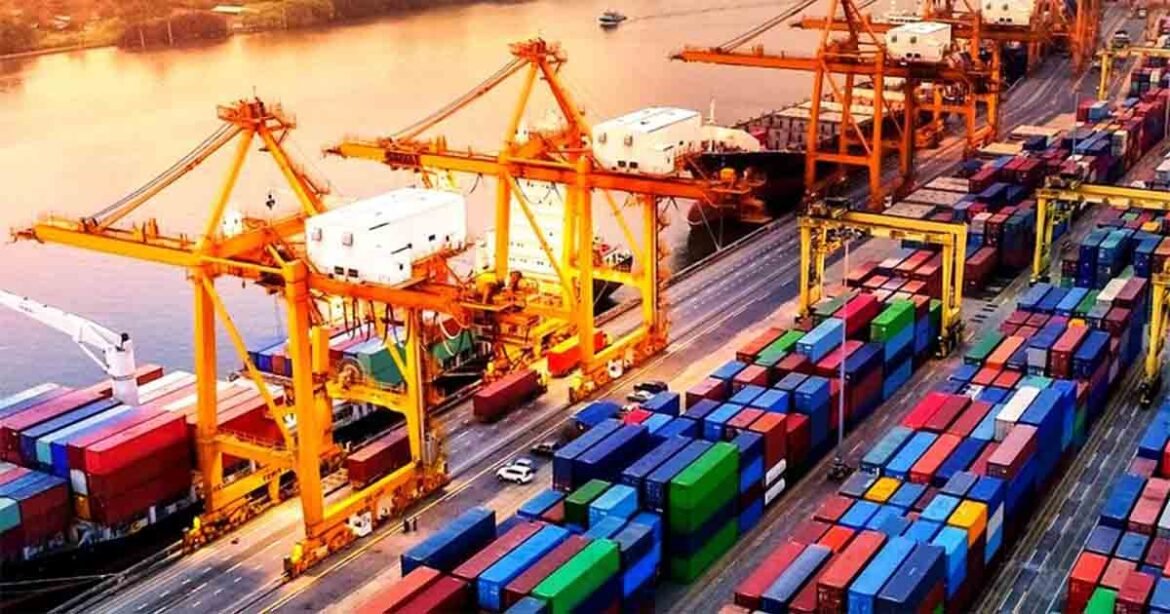The government is planning a review of the current trade negotiation structure prior to the country’s graduation from the status of LDC in order to ensure efficient and time-bound agreements with other nations.
Bangladesh is scheduled to graduate from the group of least developed countries (LDCs) on November 24, 2026, per a decision made by the UN General Assembly in November 2021. The assessment found that Bangladesh shined in all three categories, with a per capita GNI of 1827 USD (the threshold is USD 1222), Economic Vulnerability Index and Human Asset Index of 27 and 75.4, respectively (the requirement is 32 and below).
By meeting all three graduation criteria (GNI Per Capita, Human Asset Index, and Economic Vulnerability Index), Bangladesh’s graduation testifies to the country’s impressive track record in terms of some of the most important socioeconomic indicators of development. Sustainable LDC graduation will now depend on Bangladesh’s ability to take advantage of emerging global opportunities against the backdrop of rapidly changing and evolving geo-economics, as well as its capacity to resolve the challenges arising from graduation.
Graduating from LDC would be a remarkable improvement for Bangladesh as it will open doors of numerous opportunities. However, after 2026, all other LDC nations will claim the tariff benefits that Bangladesh has been enjoying as an LDC from the outside world. Bangladesh will confront many challenges after being removed from the list of least developed countries (LDC). The most significant obstacle will be the decline in export earnings. Consequently, Bangladesh has decided to re-visit the existing trade negotiation structures.
Bangladesh to miss duty free & quota free access
Bangladesh enjoys duty-free and quota-free access to the markets of the European Union (EU). Up to 96% of the facility’s capacity is utilized by Bangladesh. With LDC graduation, the nation will no longer receive these advantages. However, the EU has already confirmed that the 27-nation bloc will continue to provide Bangladesh with the LDC trade benefit until 2029, given the three-year grace period for graduates. Then, the primary impediment will emerge.
As an LDC, the Generalised System of Preferences (GSP) facility accounts for more than 73 percent of the country’s international trade with 38 nations. This indicates that 73% of Bangladesh’s $52 billion in merchandise export revenues during fiscal 2021-22 were attributable to LDC preferential trade benefits. Nonetheless, if Bangladesh is unable to obtain GSP plus benefits, local exporters will be subject to nearly 12% duties on EU cargoes upon graduation from LDC status. In other words, the excessive export duty could cause a decrease in revenue of at least 51,000 BDT.
Government to revisit trade negotiation structures
According to officials, the planned evaluation will enhance the nation’s negotiating prowess in preparation for the forthcoming challenges of the post-graduation trade regime. The Commerce Ministry will consult with relevant ministries, divisions, and departments, as well as stakeholders, academics, think tanks, and research organizations, in order to reevaluate the structure of trade negotiations, according to officials. According to them, the Bangladeshi Foreign Trade Agreement (FTA) division of the Commerce Ministry is responsible for international trade-related matters. In other nations, the economy and trade-related ministries are responsible for the issues.
Once the country is no longer considered an LDC, which is scheduled for 2026, officials say it will face multiple challenges, including the loss of duty-free and quota-free market access as well as other trade preferences. For an efficient and resilient LDC graduation, Bangladesh must be prepared to overcome all obstacles on its path to global and regional markets, they stated.
According to an official, the ministry examined the trade negotiation structures of countries such as Japan, the United States, the United Kingdom, India, Singapore, and Sri Lanka in order to gain insight into how bilateral and multilateral trade issues are negotiated in this modern era.
According to him, the Ministry of Commerce (MoC) believes that there should be a permanent structure for negotiating foreign trade-related issues, encompassing the relevant ministries and departments and building the capacity of officials who remain in the same offices throughout their careers. They also discussed whether it is essential to establish a separate entity, such as a department or division, under the MoC after necessary cooperation with experts/academics from relevant fields, or whether the current structure should be maintained.
In addition, the United Nations Commission on Population and Development (UN CPD) has urged Bangladesh’s development and trading partners to extend preferential market access and to exempt enforcement of the TRIPS for a reasonable period of time, which must be negotiated at international and bilateral levels with Bangladesh.
| Is graduating from LDC all about loss? |
|---|
| Graduating from the LDC category is actually a commendation from the international community for Bangladesh’s achievements in economic growth and development, which would bolster the confidence of international financiers. Countries that have graduated in the past have seen an increase in FDI. It is anticipated that the enhanced perception of the country’s market risks will result in an upgrade to the country’s international credit rating, leading to an increase in investable resources. Graduation may not immediately reduce foreign aid, but it is likely to improve domestic tax collection dramatically. To make all of these possibilities a reality, Bangladesh would need to implement a substantial number of structural and policy reforms. Bangladesh must surmount a number of obstacles before it can reap the potential benefits of graduation. |


